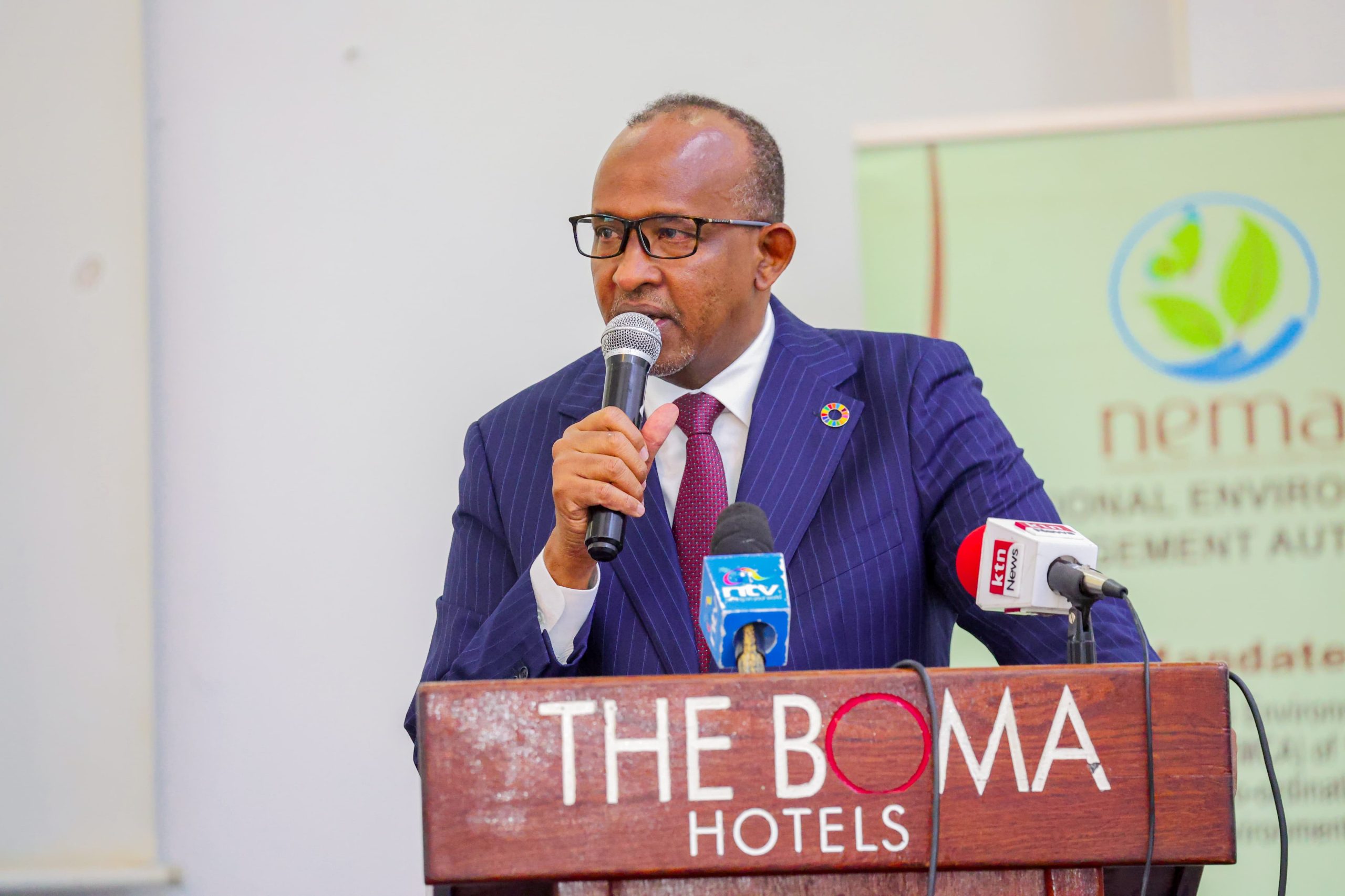Government will gazette the Extended Producer Responsibility (EPR) regulations to ensure accountability and effective implementation.
This is according to the Environment, Climate Change and Forestry Cabinet Secretary Aden Duale who was speaking during a Consultative meeting with producers on the use of Extended Producer Responsibility (EPR) to clean up Nairobi Rivers held on Monday at Boma Hotel, South C.
He challenged the industry producers to take responsibility of their packaging material in Nairobi Rivers. “If you are in packaging industry- you MUST take responsibility of your packaging material in Nairobi Rivers.”
The CS asked the producers to comply with the restoration order from NEMA to clean up waste in the Nairobi rivers as directed.
“I am informed that you all got a restoration order from NEMA to clean up your waste in the Nairobi rivers- You must comply with the orders as directed and ensure that our rivers are spotlessly clean!” CS Duale said.
He said compliance with EPR is mandatory for all producers, adding that government will not allow non compliance by any company.
Parliament enacted the Sustainable waste management act, 2022 (Chapter 387C) with the sole objective of transitioning Kenya from Linear waste management to circular model of waste management to drive value out of the waste before final disposal.
Section 13 (1) of the Sustainable waste management Act, 2022 states that “ Every producer SHALL bear Extended Producer RESPONSIBILITY obligations to reduce pollution and environmental impacts of the PRODUCTS they introduce into the Kenyan market and waste arising therefrom.
Recently, the President William Ruto launched the Climate Resilience Service Programme on 12th September, 2024 and Waste Management and Sanitation were singled out as key issues to attention the relevant lead agencies including, the private sector.
Duale said, EPR will be a major tool in implementation of the recently launched Climate Resilience Service Programme (Climate WorX) along Nairobi Rivers.
“The government has engaged over 20,000 youth to remove waste from the river. Since most of this waste has labels from the producers, we expect EPR schemes to take their waste away for safe disposal.” He stated.
Additionally CS Duale noted that EPR schemes should sustain cleanliness of the river by ensuring that all stakeholders establish strong logistical systems that integrate the local community groups to collect, transport, recycle, reuse and safely dispose waste emanating from their products.
According to the Sustainable Waste Management Policy 2021, every Kenyan generates about 0.5 kgs of waste every day amounting to 25,000 tonnes per day for a population of 50 million Kenyans. This waste by composition is 60% organic, 30% recyclables and 10% others.
He remarked that earlier approaches to waste management in Kenya relied on a linear model of “take, make, dispose.” This resulted in littering, the creation of illegal dumpsites, resource wastage, and increased greenhouse gas emissions.
EPR is a policy approach based on the Polluter-Pays Principle whereby producers are given significant responsibility – financial, organizational and/or physical – for the product design, collection, treatment and disposal of the waste from the products they introduce in the market.
“I am coming to you today to stress accountability on levels of compliance with Section 13 of the Solid Waste Management Act, 2022.” He said.
Noting that: “It is crucial that we address this matter promptly, and I expect your full cooperation in ensuring we meet our obligations and standards.”
The CS applauded NEMA for enforcing the SWM Act Section 13 and in the last 8 months have issued restoration orders to 145 companies whose products and packaging were found in the Nairobi rivers, saying “To ensure cleanliness of Nairobi Rivers and other water bodies in Kenya, every producer must demonstrate evidence of implementation of EPR.”
He concluded by clarifying that the EPR is a two-edged sword noting that Kenya has set in motion a process whereby all producers have been given an opportunity to demonstrate that they trade in products that do not degrade the environment warning that in the unlikely event that the product continues to cause pollution, this will trigger the need for NEMA and the producers to engage in a discussion with an intention to ban that product or packaging.




